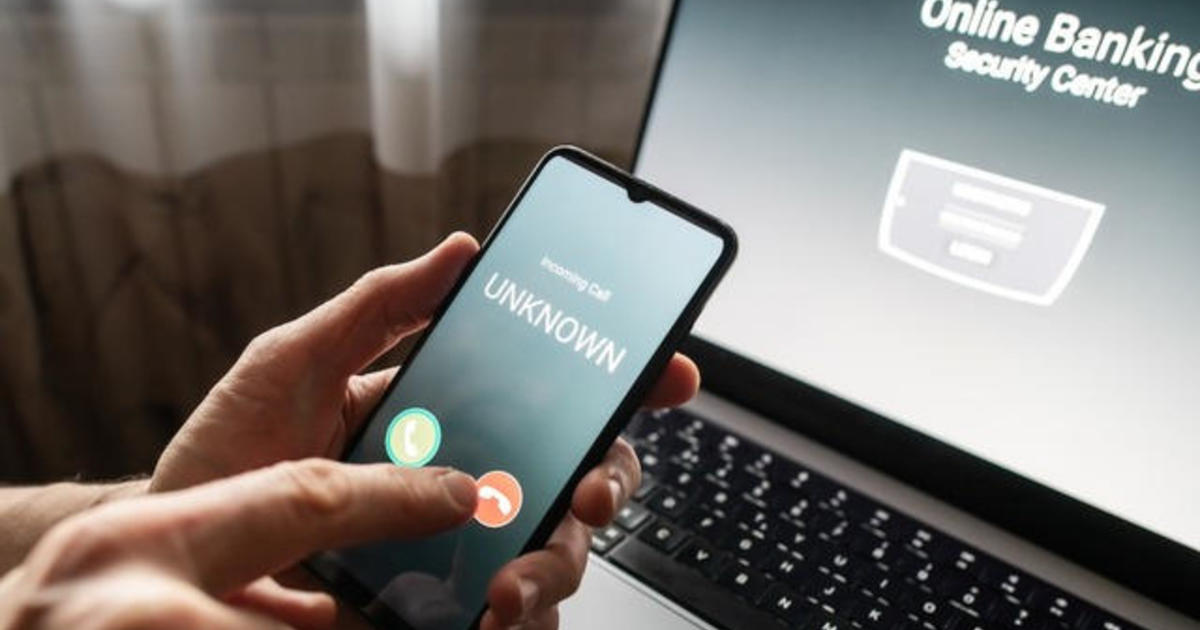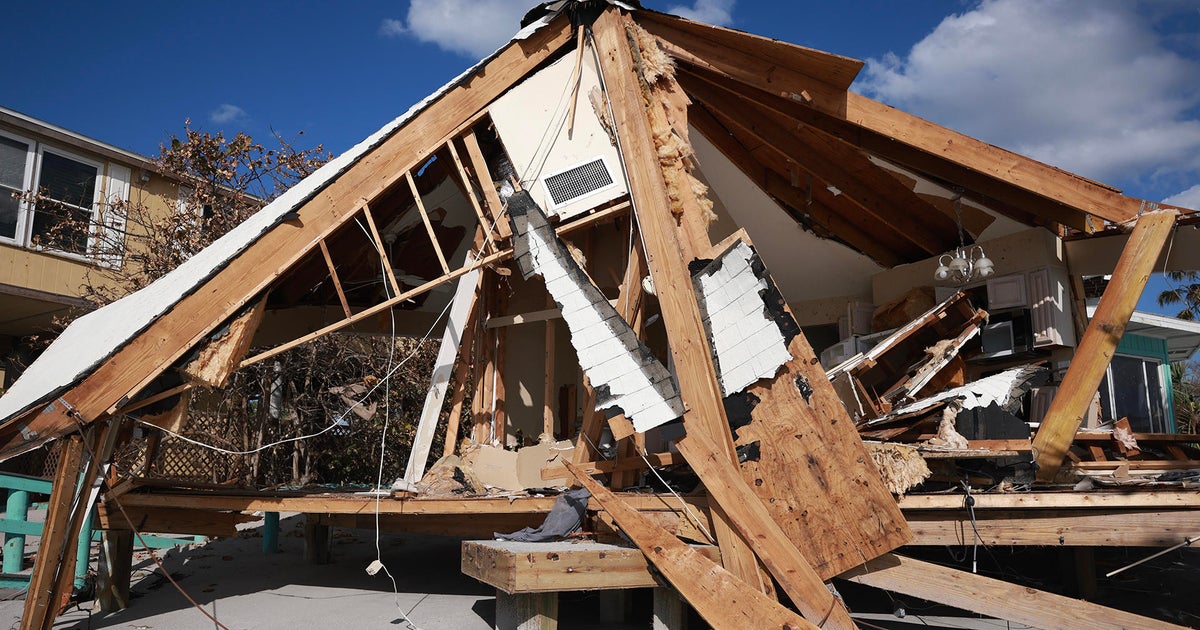CBS News
Americans lose millions of dollars each year to wire transfer fraud scams. Could banks do more to stop it?

Americans are losing millions of dollars every year to criminals who steal money from their bank accounts through fraudulent wire transfers. Some U.S. senators are now pressing major banks for answers about what they are doing to stop the scammers.
In a letter to JP Morgan Chase, Citibank, Bank of America and Wells Fargo, first reported by CBS News, the Senate Banking Committee wrote, “Banks should make consumers whole for unauthorized transactions,” including “fraudulently induced transactions” like wire transfers, where “a consumer was deceived or manipulated into initiating a transfer.”
That’s what several Chase bank customers interviewed by CBS News said happened to them. New York City resident Jennifer Davis said she lost $25,000 to a wire fraud scam.
“I was horrified,” Davis said. “I was horrified. I was devastated. This was stolen from me and this is a crime.”
Andrew Semesjuk of Connecticut said he lost $15,000.
“Their job is to protect our investments,” Semesjuk said. “Otherwise, what’s the point of putting it with a bank?”
Florida resident Nikki Kelly said she lost $48,000 from a business account.
“My life has just basically been destroyed,” said Kelly.
The story of Karen Roe, another Florida resident, is typical. She was in the hospital for a medical procedure last year when her phone rang. The caller ID said Chase Bank, she said, and when she answered, a man identified himself as working for the bank.
“‘We need to verify a transaction that’s been processed on your account,'” Roe quotes him as saying.
Roe says he told her it was a $71 transaction at a Walmart in New Mexico. She told him it wasn’t her. “I said, ‘absolutely not.’ I said, ‘I’m in Orlando. I’m not in New Mexico. I haven’t been to New Mexico,'” Roe recalled.
Next, she says, the man claimed someone was trying to wire-transfer money out of her account and told her he could stop the transaction, but first he needed to verify her identity over the phone.
“He said that he was going to send an authentication code to make sure that it’s me on the other end of the phone,” Roe said.
She read him back the code, but later discovered it had not been a step taken to verify her identity. Instead, the scammers used that code to authorize a wire transfer out of her account to their own.
Roe said they stole $27,000 she’d earned from running her countertop installation business. It was gone in a matter of seconds. The theft left her stunned.
“It totally rocked my world,” Roe said.
On top of that, the crooks also stole an additional $19,000 from an account she managed for a nonprofit industry group, leaving her facing questions from members of the group as to how the theft had happened.
“That wasn’t even my money. That was the members’ money,” Roe said. “And I just was sick, was sick to my stomach.”
Chase investigated the theft and in a letter to Roe acknowledged she was “the victim of a scam.” But the bank contended the wire transfers were “authorized” and said Chase had “received calls verifying the wires as valid” with someone “providing (her) debit card number and pin,” and further said, “we processed it as you instructed.”
Roe told CBS News she feels unfairly blamed.
“They’re not taking responsibility for what is happening to their customers,” she said.
Chase told CBS News it does reimburse customers “for unauthorized transactions” if it decides a customer had no part to play in the transaction.
But in Roe’s case, and those of the other victims CBS News interviewed, Chase said it would not reimburse their money because Chase had determined their transactions were “authorized” — despite the victims reporting to law enforcement they were conned.
“They just left me high and dry,” said Davis. “i don’t understand.”
Consumer experts say the problem is the federal law that protects consumers in other banking transactions, the Electronic Funds Transfer Act, or EFTA, generally exempts wire transfers, meaning banks don’t have to reimburse those losses.
The National Consumer Law Center argues that loophole in regulations should be closed to encourage banks to tighten their security procedures.
“If they knew that they were going to be on the hook and that they were going to have to reimburse consumers, I think they would have stronger security procedures,” said NCLC senior attorney Carla Sanchez-Adams.
In a previous hearing on the subject, Senator Sherrod Brown, the chairman of the Senate Committee on Banking, Housing, and Urban Affairs, said consumers need better protection.
“It’s on the companies. People should be able to have an expectation their money is safe,” said Brown, a Democrat from Ohio.
The committee is asking the four banks to provide five years’ worth of information, including how many people reported being victims and just how much money was lost.
A CBS News analysis of consumer complaints reported to the Consumer Financial Protection Bureau shows complaints about domestic wire fraud to JP Morgan Chase were more than four times higher in 2023 as compared to 2020, going from 88 complaints to 355.
All four banks declined to comment on the Senate Banking Committee’s letter.
Chase told us it continues to “make significant investments to protect customers from fraud and scams” and help them spot tactics used by criminals.
But in testimony before the Senate last year, Chase CEO Jamie Dimon said that it was “unreasonable” to ask banks to “subsidize” criminal activity and that the government and police should do more to stop and prosecute criminals who run wire transfer fraud scams.
Chase provided CBS News with the following statement and tips for consumers:
“Consumers should always be suspicious of people asking them for passcodes, access to their device, or money to prevent fraud. Banks won’t make these requests or ask that you send money to yourself, but scammers will.” – Chase spokesperson
Scam prevention tips:
Scammers can “spoof” phone numbers. The caller ID can say the call or text is from your bank even though it’s not. They do this to trick people into providing their personal or financial information or to get them to send money
Remember, even if your caller ID says a call or text is from Chase, it could be a scam. When in doubt hang up and call us directly
If you want to be sure you are talking to a legitimate representative of your bank, call the number on the back of your card or visit a branch
Consumers should protect their personal account information, passwords and one-time passcodes
Banks will never call, text or email asking for you to send money to yourself or anyone else to prevent fraud
Always double check who you are sending money to – once you send money, you might not get it back.
To learn more about common scams and ways to protect yourself, visit: www.chase.com/security.
CBS News
Trump makes more Cabinet picks but some top economic posts remain unfilled

Watch CBS News
Be the first to know
Get browser notifications for breaking news, live events, and exclusive reporting.
CBS News
Open: This is “Face the Nation with Margaret Brennan,” Nov. 24, 2024

Watch CBS News
Be the first to know
Get browser notifications for breaking news, live events, and exclusive reporting.
CBS News
Popular gluten free tortilla strips recalled over possible contamination with wheat

A food company known for popular grocery store condiments has recalled a package of tortilla strips that may be contaminated with wheat, the U.S. Food and Drug Administration said Friday. The product is meant to be gluten-free.
Sugar Foods, a manufacturing and distribution corporation focused mainly on various toppings, artificial sweeteners and snacks, issued the recall for the “Santa Fe Style” version of tortilla strips sold by the brand Fresh Gourmet.
“People who have a wheat allergy or severe sensitivity to wheat run the risk of serious or life-threatening allergic reaction if they consume the product,” said Sugar Foods in an announcement posted by the FDA.
Packages of these tortilla strips with an expiration date as late as June 20, 2025, could contain undeclared wheat, meaning the allergen is not listed as an ingredient on the label. The Fresh Gourmet product is marketed as gluten-free.
Sugar Foods said a customer informed the company on Nov. 19 that packages of the tortilla strips actually contained crispy onions, another Fresh Gourmet product normally sold in a similar container. The brand’s crispy onion product does contain wheat, and that allergen is noted on the label.
U.S. Food and Drug Administration
No illnesses tied to the packaging mistake have been reported, according to the announcement from Sugar Foods. However, the company is still recalling the tortilla strips as a precaution. The contamination issue may have affected products distributed between Sept. 30 and Nov. 11 in 22 states: Arizona, California, Colorado, Florida, Georgia, Iowa, Idaho, Illinois, Indiana, Maryland, Maine, Michigan, Minnesota, North Carolina, New Jersey, Ohio, Oregon, Pennsylvania, Texas, Utah, Virginia and Washington.
Sugar Foods has advised anyone with questions about the recall to contact the company’s consumer care department by email or phone.
CBS News reached out to Sugar Foods for more information but did not receive an immediate reply.
This is the latest in a series of food product recalls affected because of contamination issues, although the others involved harmful bacteria. Some recent, high-profile incidents include an E. coli outbreak from organic carrots that killed at least one person in California, and a listeria outbreak that left an infant dead in California and nine people hospitalized across four different states, according to the Center for Disease Control and Prevention. The E. coli outbreak is linked to multiple different food brands while the listeria outbreak stemmed from a line of ready-to-eat meat and poultry products sold by Yu-Shang Foods.










